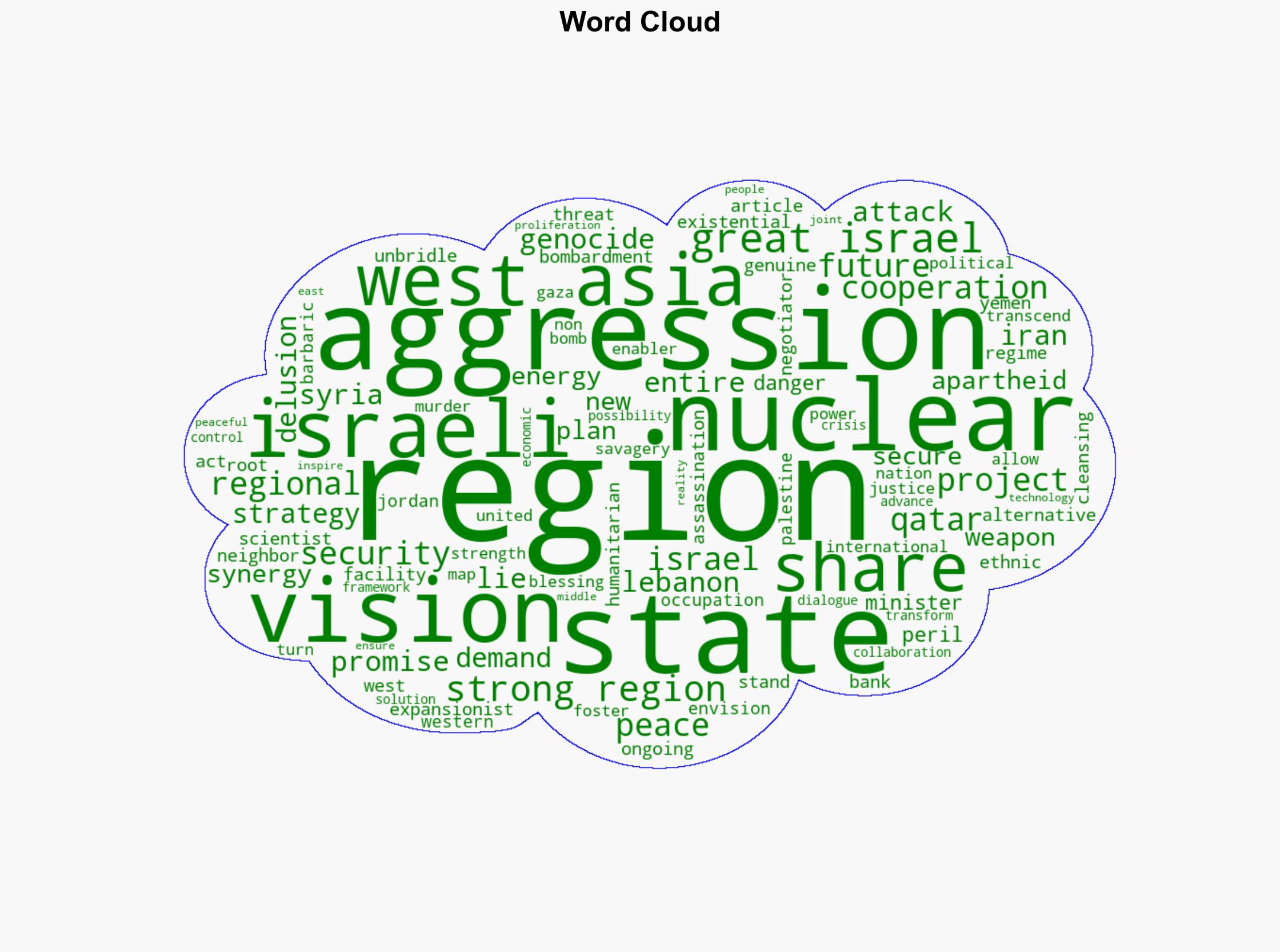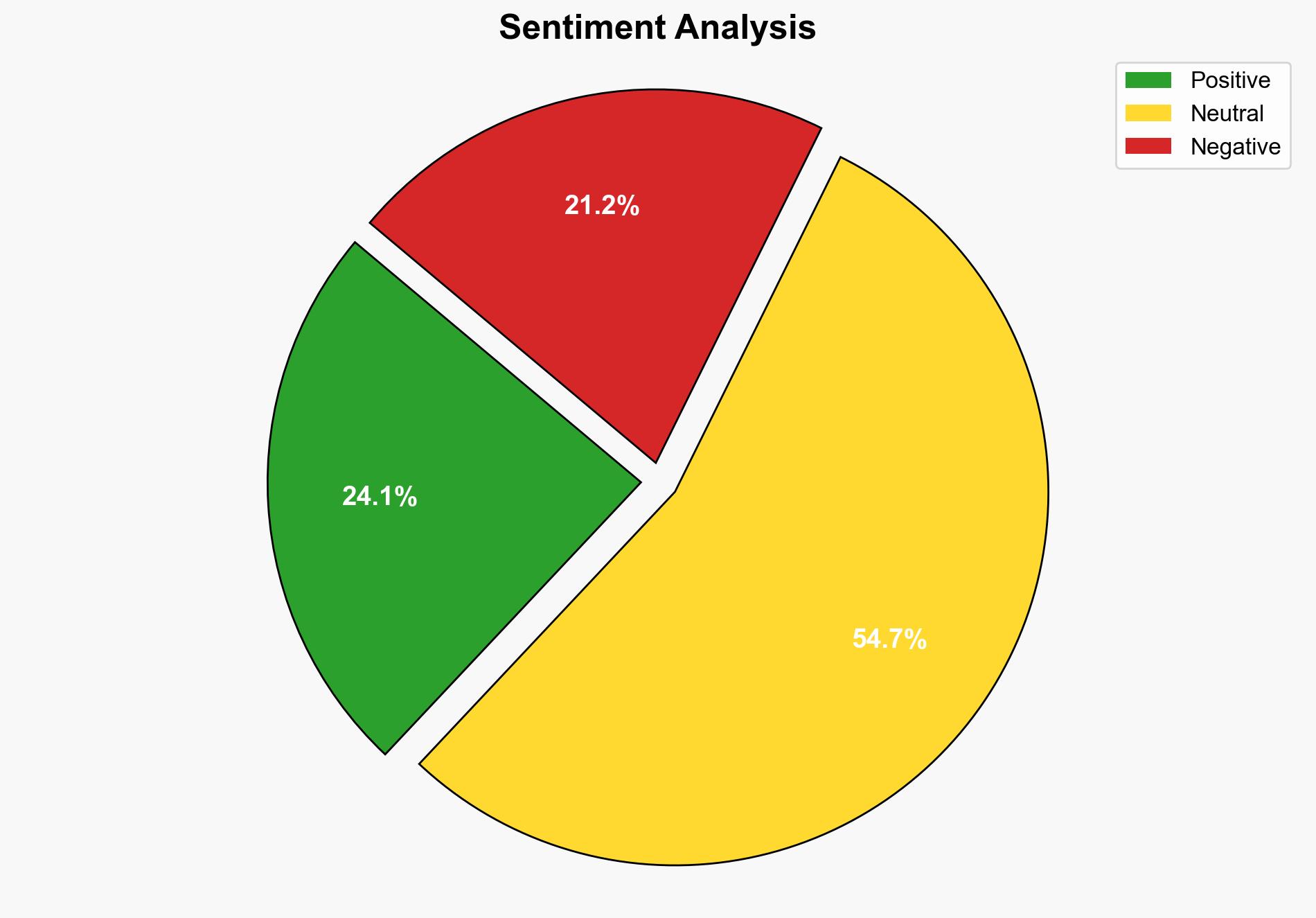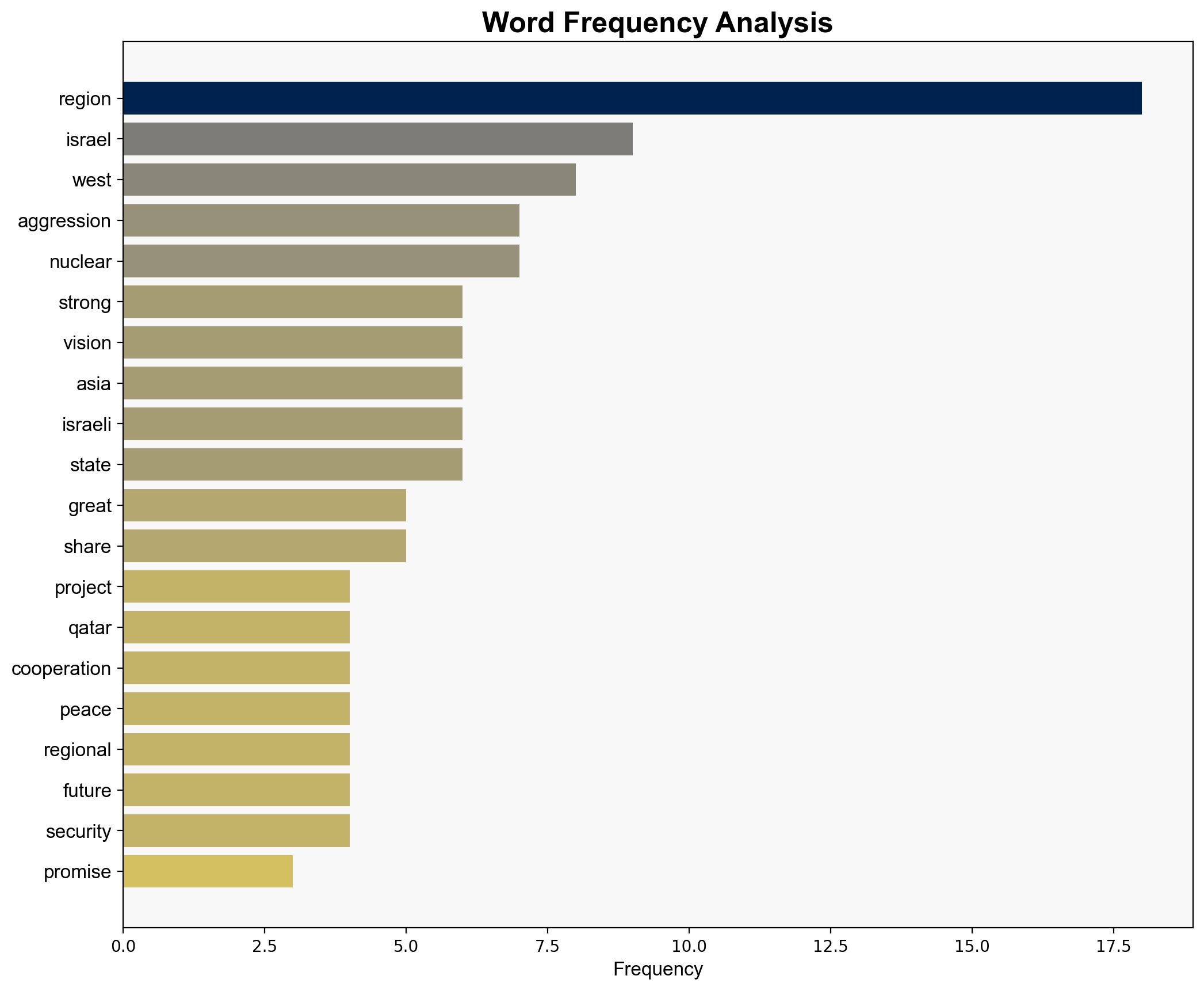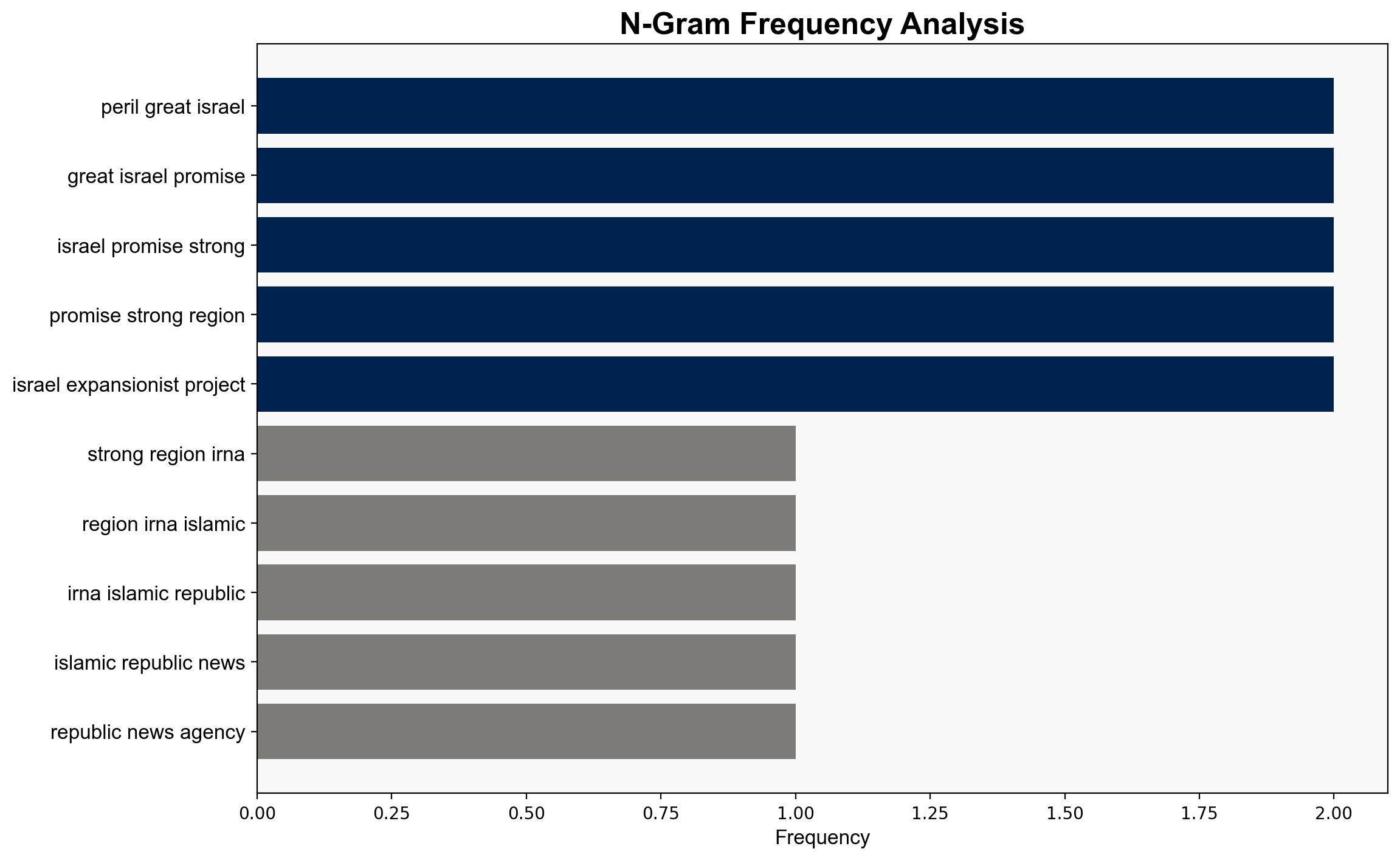Perils of ‘Greater Israel’ and the promise of a strong region – Globalsecurity.org
Published on: 2025-09-13
Intelligence Report: Perils of ‘Greater Israel’ and the promise of a strong region – Globalsecurity.org
1. BLUF (Bottom Line Up Front)
The intelligence suggests two primary hypotheses regarding the situation in West Asia: (1) Israel’s expansionist policies are driven by a strategic vision to establish regional dominance, potentially destabilizing the region, and (2) the narrative of Israeli aggression is exaggerated by regional actors to unify opposition against Israel and strengthen their geopolitical influence. The analysis supports the first hypothesis more strongly, given the historical context and current geopolitical dynamics. Confidence level: Moderate. Recommended action: Engage in diplomatic efforts to address regional tensions and promote cooperative security frameworks.
2. Competing Hypotheses
1. **Hypothesis 1:** Israel is pursuing an expansionist agenda, aiming to establish itself as the unchallenged hegemon in West Asia. This involves aggressive military actions and territorial annexations, which could destabilize the region.
2. **Hypothesis 2:** The portrayal of Israel as an aggressor is amplified by regional actors like Iran to consolidate anti-Israel sentiment and enhance their own strategic positions in West Asia.
Using ACH 2.0, the evidence of Israel’s historical territorial ambitions and recent military actions supports Hypothesis 1. However, the lack of direct evidence linking these actions to a cohesive expansionist strategy leaves room for Hypothesis 2, where regional narratives may exaggerate threats for strategic gain.
3. Key Assumptions and Red Flags
– **Assumptions:** Hypothesis 1 assumes Israel’s actions are part of a deliberate strategy rather than isolated incidents. Hypothesis 2 assumes regional actors have the capability and intent to manipulate narratives effectively.
– **Red Flags:** The intelligence relies heavily on narratives from sources potentially biased against Israel, such as IRNA and Al Akhbar, which may skew the interpretation.
– **Blind Spots:** There is limited consideration of Israel’s internal political dynamics and their impact on foreign policy decisions.
4. Implications and Strategic Risks
– **Geopolitical Risks:** Continued aggression could lead to broader regional conflicts, involving major powers and destabilizing global markets.
– **Economic Risks:** Prolonged instability may disrupt energy supplies, impacting global economic stability.
– **Cyber and Psychological Dimensions:** Increased cyber warfare and propaganda could exacerbate tensions and influence public perception.
– **Escalation Scenarios:** Potential for military escalation involving Iran and its allies, leading to a broader conflict.
5. Recommendations and Outlook
- Engage in multilateral diplomatic initiatives to de-escalate tensions and promote dialogue between Israel and its neighbors.
- Strengthen intelligence-sharing frameworks to counter misinformation and enhance regional security cooperation.
- Scenario Projections:
- **Best Case:** Successful diplomatic engagement leads to a reduction in hostilities and a cooperative security framework.
- **Worst Case:** Escalation into a broader regional conflict involving major powers.
- **Most Likely:** Continued low-intensity conflicts with periodic escalations, requiring ongoing international mediation efforts.
6. Key Individuals and Entities
– Benjamin Netanyahu
– Mohammad Javad Zarif
– IRNA (Islamic Republic News Agency)
– Al Akhbar
7. Thematic Tags
national security threats, geopolitical stability, regional conflicts, diplomatic engagement




